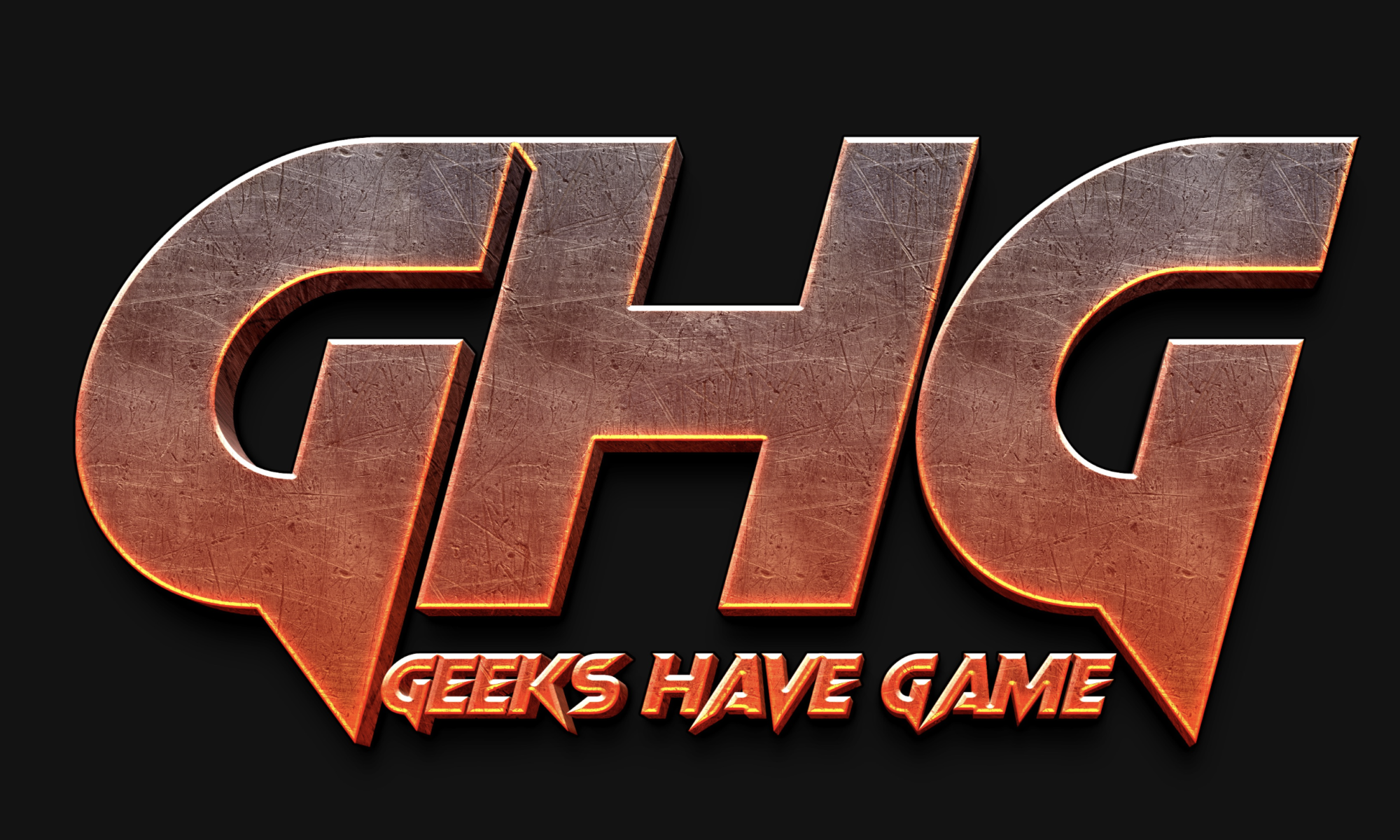
We’ll keep this short and spoiler-free: Joker (co-written by Scott Silver and Todd Phillips, who also acted as the film’s director) might as we ll be a one-man show, focusing on Joaquin Phoenix‘s Arthur Fleck for nearly every single scene. Fleck is seemingly perpetually down-on-his luck: living with his possibly-dementia-ridden mother, caring for her, and struggling to connect with most people in his life, including his coworkers at a clown-for-hire company, as well as the neighbor down the hall (a fairly underutilized Zazie Beetz) with whom he’s smitten — to say the least…
Arthur harbors dreams of being a stand-up-comedian, fantasizing about performing live on TV on “The Murray Franklin Show”, a variety show in the vein of The Tonight Show, hosted by the larger-than-life namesake of the show, Murray Franklin (Robert DeNiro). As one of life’s indignities eventually leads into another, and then another, in one endless cascade, Arthur morphs into an alter ego perhaps no one could have predicted: Joker.
Cinematographer Lawrence Sher, and director Phillips, faithfully recreate the feel and look of late-1970s/early-1980s New York City — or at least something as approximate to it as possible — and manage to keep the scale of the film appropriately small and intimate. This is a version of Gotham City not yet seen on screen; more gritty, dirty, and tense (with rather silly-named “super rats” running around the city’s garbage-covered streets).
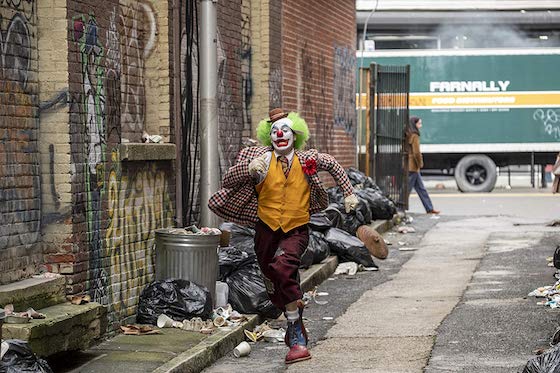
There is a sense of social unease and decay, with politicians (and police) each equally corrupt and uncaring to what ails the citizens. It’s easy, in this environment, to see how mental illness (mostly ill-defined) can fester and grow into something much like Arthur Fleck, beaten down long enough until, ultimately…here is a man who won’t take it anymore…
Sorry. Another movie slipped in there, and that often happened while watching Joker. Glimpses, homages, and outright riffs from much more famous, successful gritty 1970s New York movies are sprinkled liberally throughout. Travis Bickle’s finger-gun-to-the-head. Alain Charnier losing Popeye Doyle on a crowded subway. The smoke-filled bars and dives occupied by psychos right out of Mean Streets. And while much has been written of this film’s spiritual similarity to Taxi Driver, and The King Of Comedy, an appropriate comparison would be to Scorsese’s After Hours: a character study of a barely stable man scouring a twilit City, itself occupied with increasingly surreal characters.

The explosions of violence are built terrifically, growing in intensity until the scene itself is ready to burst from the screen (Arthur’s scene with three drunk yuppies is staged pitch perfect). Without spoiling much, a scene involving Arthur, and his two coworkers Randall (Glenn Fleshler) and Gary (Leigh Gill) late in the film not only build in increasingly uncomfortable intensity, but also includes a mean-spirited, pitch black sight gag that is such pure Joker sense of humor I had to grin instinctively — probably my favorite scene in the whole film. But despite what the movie gets right, there lacks a thesis, a point to everything that is unfolding onscreen.
As gorgeous as the film looks, and as unique a tone as it holds (one to which it thankfully commits for the entirety of the run-time), there’s a weird hollowness to it. If there’s an apt metaphor to this film’s philosophy, it would be a jock in college reading Ayn Rand for the first time and telling you JUST HOW IMPORTANT IT IS…THIS IS. THE. BOOK. TO FOLLOW. Hell, swap Ayn Rand for Jordan Peterson and you’ll have the modern equivalent.
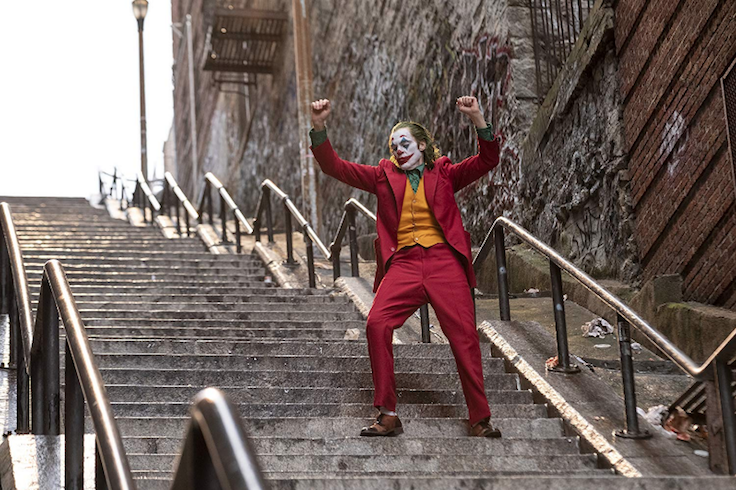
This film isn’t dangerous, it isn’t a call to arms, and it isn’t revolutionary. Hell, Joker’s rambling monologue right before a major act of explicit violence read like some teenage whining…and seemed performed a bit as such, cracking voice and all. Hell, even the score by Hildur Guðnadóttir was used to the effect of “LISTEN TO HOW SERIOUS AND NON-COMIC-BOOKY WE ARE.” And yes, the score was GOOD, but was so overbearing I couldn’t help but feel like laughing at times. The movie isn’t as smart nor serious as it wants to be…but it’ll convince you the entire time that it is.
But even after all that…I really liked it. And if Joaquin Phoenix were any less an actor than he is, it’s possible it would not have worked as well as it does. Arthur is already clearly unstable from his first shot, just barely getting by with the bare minimum, and grabbing at any success or victory…no matter how small or petty. One can almost see this as the next logical conclusion to his earlier character, Freddie Quell, had that character continued aimless in his life.
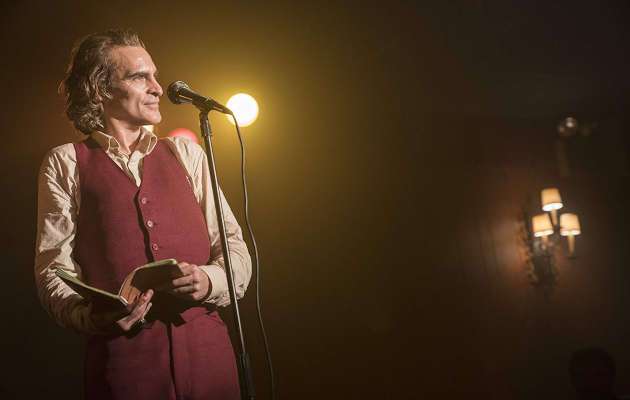
There’s a physicality to Arthur that prior iterations of Joker lack, a sense that his insanity is manifesting itself physically. And in this, the genius and creativity of playing the Joker comes to light: Jack Nicholson‘s iteration is a pure supervillain — one can easily picture him trying to take over and rule Gotham. Heath Ledger easily explores the character’s inherent danger and unpredictability, his sadism and nihilistic streak and relishing of violence and chaos; hell, even Jared Leto‘s Fuckboi Joker brings a unique take in how Joker can navigate and run both the criminal realm as well as the streets, and how he can bring massive resources to his disposal.
Phoenix is never going to run a gang, he’s never going to contrive to rule the world, or even Gotham City. Hell, he’s too socially awkward and barely functioning to even make the most of his own charisma (late though does he discover). No, Phoenix’s Joker is as down-to-earth as can be; this is a Joker who is genuinely mentally ill, yet cannot think bigger than his own immediate desires. It’s a different angle, that’s for sure, and it’s played absolutely brilliantly. I would watch this iteration for another three or four movies.
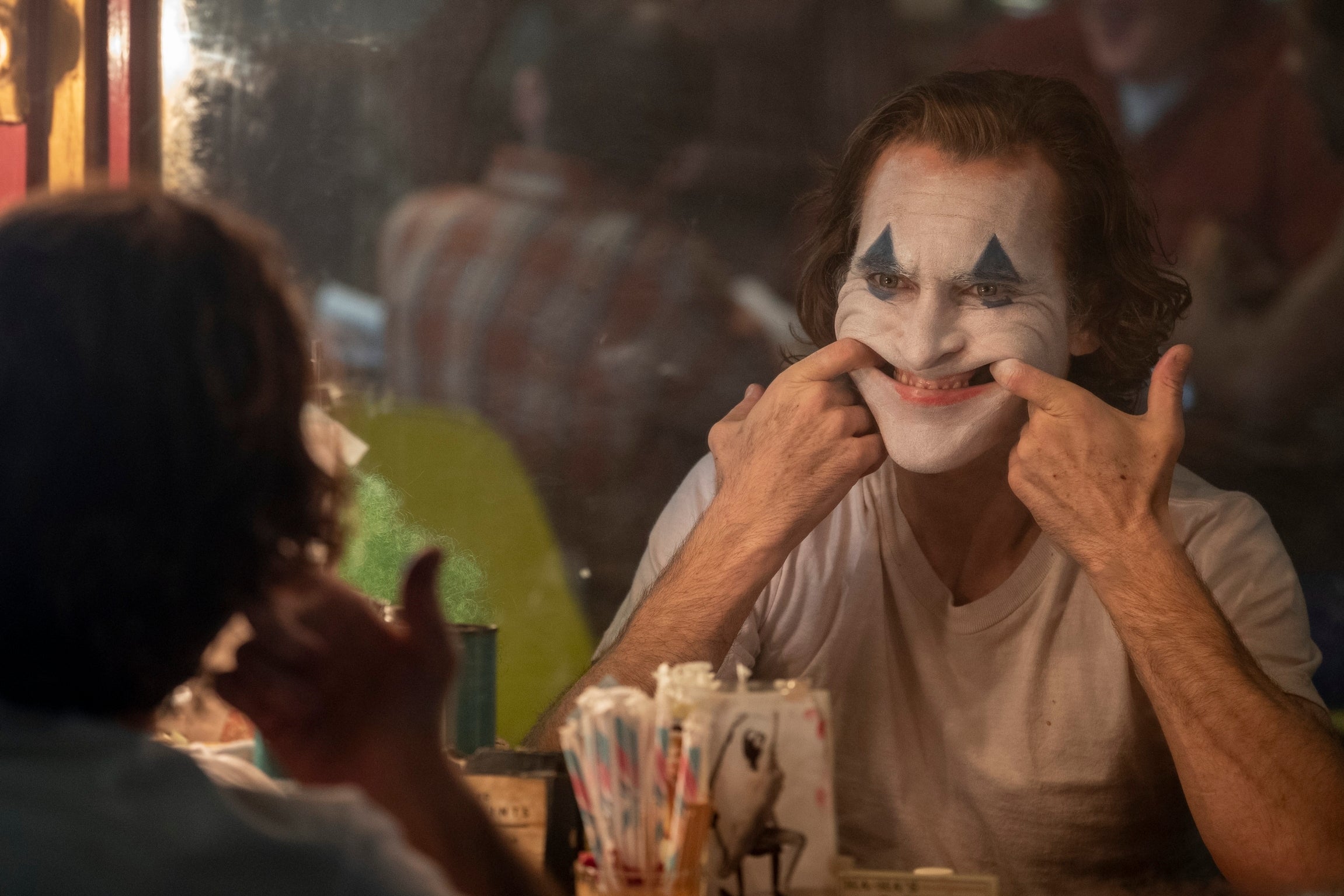
There is most likely a very deliberate reason why he calls himself “Joker” and not the more definitive “THE Joker”: even at the end of the film’s climax and largest set piece there is a sense that the character is either A) still transforming into his final form, or B) acting merely as a base inspiration for a larger, more definitive version of who we, the audience, understand The Joker to be.
As such, there are a few edges to this character that could have been worked out to make him more the supervillain we’d come to expect…if Fleck is, in fact, who we are expecting to ultimately, permanently don the makeup in the end. Taking the film’s own chronology into account (Bruce Wayne is about seven or eight years old here), it is unlikely that Arthur is the true Clown Prince of Crime, but given the effect he ultimately affords Gotham, it isn’t hard to imagine building on his image and notoriety, to become a more extreme, yet functional, version of this Joker.
And if this is what it is, if this is what Joker ultimately is…then what’s the point? It’s hard to explore a character like THE Joker independent of his heroic counterpart, without some symbol of function and discipline to juxtapose against. Without a Batman to contrast against…or at least some symbol of greater good…it becomes hard to separate Arthur from his own surroundings, and instead make him seem — in his time and environment — as the most logical end result. And if he’s worse than the rest of society because he’s the only one wearing clown makeup…then what’s the point of following this character if there’s no foil or arch enemy to contrast?
But maybe that’s the point? Who knows…because I sure don’t. Maybe there’s a thesis in here that mistakes having no point for being deep and challenging. And if that’s the case, as the last line suggests, maybe I don’t get it, and the joke’s truly on me. 4/5 Joke Journals.
Joker is currently playing in theaters.
